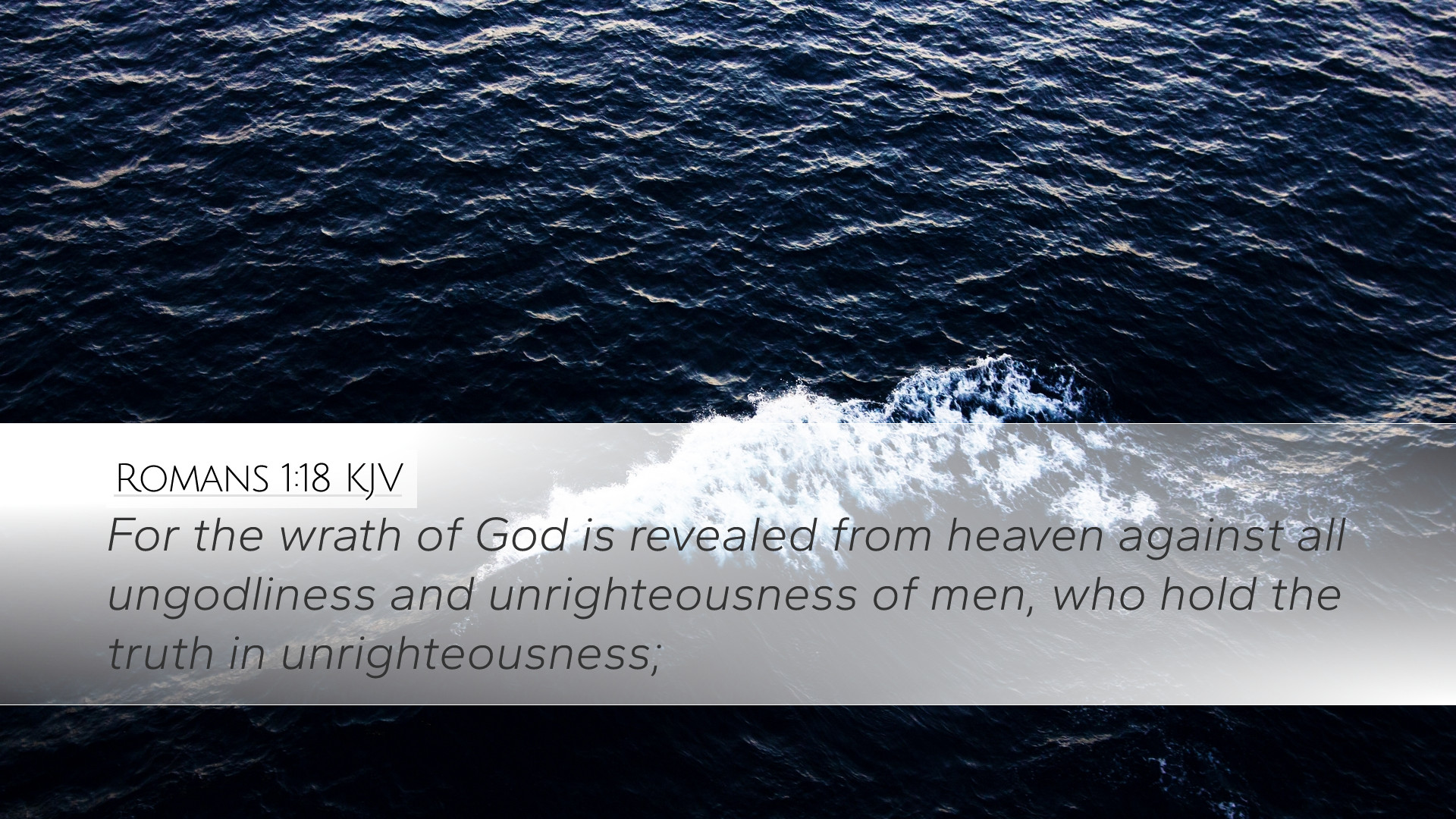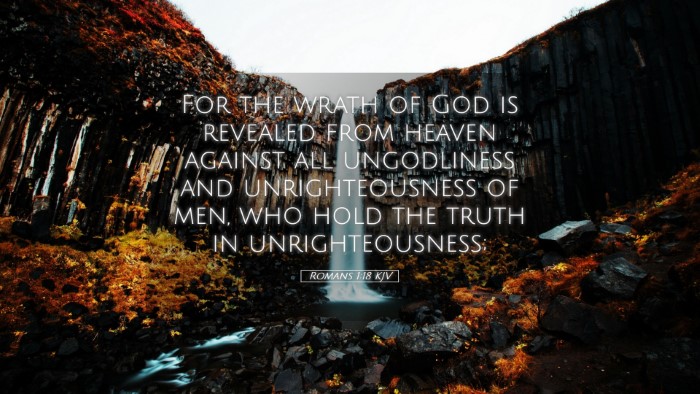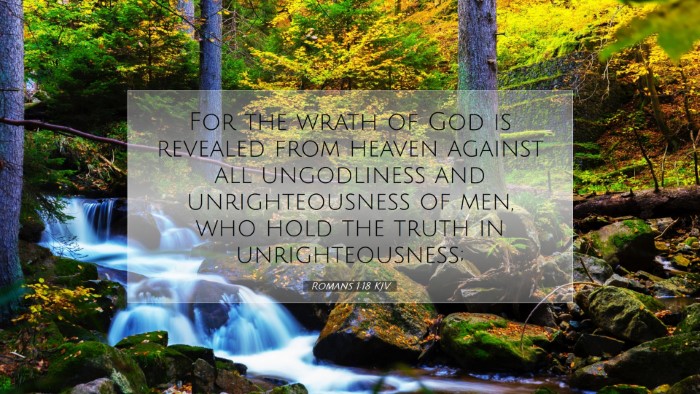Commentary on Romans 1:18
Verse Context: Romans 1:18 states, “For the wrath of God is revealed from heaven against all ungodliness and unrighteousness of men, who hold the truth in unrighteousness.” This verse serves as a critical introduction to Paul's discourse on sin, righteousness, and divine judgment.
Introduction
This verse fundamentally addresses the nature of God's wrath as a response to human unrighteousness. Paul emphasizes both the revelation of God's wrath and the reason it is directed towards individuals who suppress the truth. The implications of this verse are profound, necessitating careful examination.
Commentary Insights
1. The Wrath of God:
- Matthew Henry: Henry describes the wrath of God as “a settled opposition to sin,” which encompasses both divine disapproval and the consequences thereof. He asserts that God's wrath is not arbitrary but a just response to human wickedness.
- Albert Barnes: Barnes elaborates on this by stating that the wrath of God is “revealed from heaven,” indicating that it is not a mere emotional outburst but a calculated response from a sovereign God who judges righteously.
- Adam Clarke: Clarke emphasizes that this wrath is evidenced in the natural world and through historical judgments. He notes that calamities and disasters can often be seen as manifestations of God’s displeasure with sin.
2. Revelation of Wrath:
- Matthew Henry: He highlights that the revelation of God's wrath is an essential aspect of understanding His justice and holiness. It serves both as a warning and a call to repentance.
- Albert Barnes: Barnes underscores that this revelation is continuous and ongoing, seen in the moral order of the universe and societal consequences of wickedness. It emphasizes the seriousness with which God regards sin.
- Adam Clarke: Clarke points out that this revelation is not just in the future; it is manifest in every generation as humanity wars against the divine order, reflecting the consequences of ungodliness.
3. The Nature of Ungodliness and Unrighteousness:
- Matthew Henry: He defines ungodliness as a failure to honor and worship God, while unrighteousness pertains to moral failings towards others. Both are seen as inextricably linked in the broader context of human sinfulness.
- Albert Barnes: Barnes clarifies that these terms encompass a wide range of sins, including idolatry, immorality, injustice, and pride. They reflect a holistic view of sin's impact on human relationships and spiritual standing before God.
- Adam Clarke: Clarke explains that unrighteousness is the act of holding back the truth, leading to spiritual blindness and moral decay, which are consequences of a rebellious heart.
4. Suppressing the Truth:
- Matthew Henry: Henry notes that those who “hold the truth in unrighteousness” actively resist the knowledge of God and His moral law. Their actions show a willful rejection of divine revelation.
- Albert Barnes: Barnes states that this suppression can often happen through various means such as false teaching, denial of moral truths, and philosophical arguments that divert people from God's truth.
- Adam Clarke: Clarke warns that this suppression leads to greater blindness and hardness of heart, ultimately inciting the very wrath of God that Paul describes.
Theological Reflections
This verse serves as a pivotal moment in Paul’s exposition of the Gospel. It reflects a core belief within Christian theology—the seriousness of sin and the necessity of recognizing divine judgment. The understanding of God's wrath is essential not only for acknowledging the severity of human sin but also for grasping the depth of God’s grace manifested through the Gospel of Jesus Christ.
Application for Believers
For pastors, students, theologians, and scholars, this verse challenges the church to engage in self-examination. Understanding the nature of God’s wrath leads to a more profound appreciation of His grace. It compels believers to reflect on their own lives and the importance of bearing witness to the truth of the Gospel amidst a world often indifferent to its claims. Ultimately, this verse is a call to proclaim both the reality of sin and the hope available in Christ.
Conclusion: Romans 1:18 is a solemn reminder of the consequences of human unrighteousness and the revealed nature of God's wrath. It invites exploration into the depths of human sin and highlights the incredible mercy of God. As believers, recognizing God's righteous anger should propel us towards a deeper reliance on His saving grace and a passionate commitment to sharing this truth with others.


